7 Surprising Ways AI is About to Transform Pharma Marketing (And Why Most Aren’t Ready)
TL;DR Artificial Intelligence (AI) holds immense potential to transform the commercial and marketing functions in life sciences, pharma, and medical devices. Yet, despite the opportunities AI offers—from improving research and customer insights to streamlining content creation and compliance—many companies remain hesitant to embrace it. I’ll explore seven key areas where AI can revolutionize marketing workflows, discuss why adoption has been slow, and explain how those who embrace AI will lead the charge in the future. Let’s dive into what AI could do for your business, if you’re ready to take the plunge.
1. AI for Research and Patient Insights: Unlocking Data’s True Potential
AI’s ability to process and analyze massive datasets is a game-changer for gathering patient insights and improving research. With Natural Language Processing (NLP) tools, AI can mine clinical trials, patient-reported outcomes, and real-world data to uncover unmet needs and emerging trends. This could guide product development and patient engagement strategies with precision.
But here’s the catch: many life sciences and pharma companies are still dragging their feet. Concerns over data privacy and the complexity of integrating AI into existing systems are holding them back. The reality is, until these companies fully embrace AI, they’ll never unlock the full value of their data.
2. AI-Driven Persona Development: Say Goodbye to Guesswork
AI can take customer personas to the next level. Instead of relying on static demographic profiles, AI analyzes real-time behavioral data and engagement to create dynamic personas. This enables companies to craft highly personalized marketing campaigns and customer journeys that adjust with each touchpoint.
The challenge? Many organizations are stuck in the old way of doing things, reluctant to trust AI to guide their marketing decisions. Until they’re ready to move beyond outdated methods, they’ll continue to miss out on the opportunity to truly personalize customer experiences.
3. Media Planning and Strategy: AI for Smarter Spend
AI doesn’t just optimize content creation—it can completely transform your media planning. By analyzing past performance and customer data, AI can predict the best media channels, timing, and messaging for each campaign. This makes every marketing dollar work harder.
Yet, resistance remains strong. Many teams worry about losing control of media decisions (hello, 6:00 national news or CBS Sunday Morning) and are hesitant to let AI handle budget allocation. But those who are brave enough to let AI guide their media strategies will see better results and more efficient spending.
4. Content Creation and Customization: AI as Your Creative Partner
Creating compliant, engaging content can be one of the biggest bottlenecks for marketing teams, especially in heavily regulated industries. AI can accelerate this process by automating the generation of content—from blogs to emails—while adhering to compliance guidelines. It can even tailor content to different stages of the customer journey.
Still, there’s reluctance to fully adopt AI for content creation. Concerns about quality and the belief that AI can’t handle complex, technical content prevent many from utilizing its full potential. But those who trust AI to assist their creative process will free up valuable time and resources, making content creation faster and more efficient.
5. Sales Enablement and Ecommerce: AI Personalizes the Experience
AI offers the ability to revolutionize direct sales and ecommerce by providing personalized product recommendations and customer interactions. Through AI-powered chatbots and recommendation engines, companies can tailor product suggestions to individual customers based on their behavior and preferences.
However, many companies remain cautious, holding back due to fears of complexity or disruption to traditional sales models. Those who embrace AI for sales enablement will offer more personalized, streamlined buying experiences that set them apart from the competition.
6. MLR (Medical, Legal, and Regulatory) Review: The AI Efficiency Frontier
The Medical, Legal, and Regulatory (MLR) review is a critical but often slow part of the marketing process. Every piece of content must be reviewed for compliance with industry standards before release, which can create significant delays. AI offers a solution by acting as a first-pass reviewer, checking content for compliance before it reaches human reviewers.
AI can flag non-compliant language, check content against approved claims, and ensure consistency across all marketing materials. With AI handling the routine checks, human reviewers can focus on more complex issues, speeding up the overall process and reducing time-to-market.
What’s holding companies back? Resistance to trusting AI with such a critical function. But those who take the leap and train AI on proprietary data will see significant gains in efficiency and compliance, all while reducing human error.
7. Real-Time Analytics and Budget Optimization: AI in Action
AI’s ability to monitor and adjust campaigns in real-time is a major leap forward for marketing optimization. Instead of relying on post-campaign reports, AI can make real-time adjustments to ensure resources are being allocated where they’ll deliver the most impact. Weekly or even daily budget reallocations can be made based on performance data, maximizing ROI.
Despite the clear benefits, many companies stick to their traditional, rigid budgeting processes. But those who adopt AI for real-time performance monitoring and budget optimization will gain a significant edge, making the most of their marketing spend and driving better outcomes.
AI’s Promise is Clear, But Adoption Requires a Leap of Faith
AI offers life sciences, pharma, and medical device companies the opportunity to revolutionize their commercial and marketing functions. From more efficient research and patient insights to faster content creation and streamlined MLR reviews, AI has the power to transform these industries. But the key to unlocking AI’s potential lies in overcoming resistance to change. Those who embrace AI will lead the next wave of innovation, while those who resist will risk being left behind. AI won’t take your job—but someone who knows how to use it will.
If you are interested in discussing how AI may benefit your organization, how I have created custom GPTs for customer insights or a process to implement AI in your commercial organization - please reach out.

